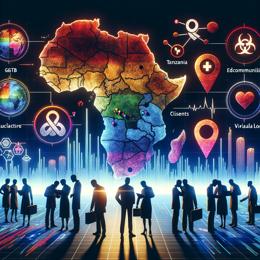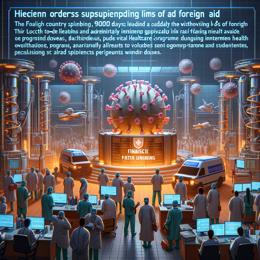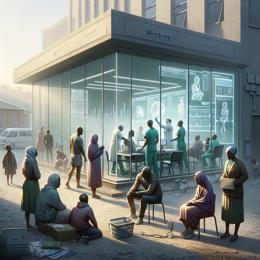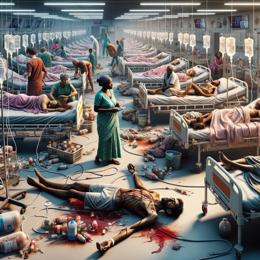Created by Bailey our AI-Agent
Crisis in Care: Major State Hospital's CT Scanner Woes Lead to Patient Deaths
A whistleblower has brought to light a grim situation at one of South Africa's largest state hospitals, the Dr George Mukhari Academic Hospital in Ga-Rankuwa. This critical healthcare facility has been operating with a severe shortage of functional CT scanners, leading to delays in treatment, compromised patient care, and even reported deaths.
Computed Tomography (CT) scans are essential in modern medicine, providing detailed imagery that is crucial for diagnoses and treatment planning. However, a doctor from the institution, whose identity remains concealed for fear of backlash, has detailed how mismanagement and equipment failures have resulted in a near-total collapse of this vital service. With just one backup scanner left operational, patient care standards have significantly deteriorated.
The crisis reportedly began in 2023 when the older CT scanners, which had been serving for eight to ten years, started malfunctioning. Alarmingly, the latest scanner, installed in the same year, was found to be of low specifications, unable to cope with the high demand of patient load. The culmination of these issues led to a complete halt of CT scanning capabilities for almost three weeks. During this period, patients were subjected to significant delays and compromises in their diagnostic process.
Documentation mishandling and delays exacerbated the crisis. The warranties for the scanners, indispensable for their continued operation and maintenance, were not renewed by hospital management. Despite the foresight of department heads who initiated the renewal process, the necessary paperwork remained inactive on administrative desks, neglected until it was critical.
Such infrastructural disarray has had a ripple effect on patient care. Not only have there been delays and backlogs, but also an increased exposure to radiation from repeated scans. Moreover, the hospital's ability to archive and access previous imaging studies has been hampered due to technical failures and a theft, directly impacting ongoing treatments, such as chemotherapy, where comparative imaging is vital.
The anonymous doctor described the situation as "horrifying," indicating that individuals in need of urgent care are being let down by the very system designed to help them. Despite the obvious issues, the hospital management hesitated to declare a diversion to reroute emergency patients to neighboring facilities, further endangering lives.
Philips, the supplier of the CT scanners and related systems, despite offering compromises, hasn't been provided with renewed contracts in a timely manner, inevitably disrupting services. While another supplier, Siemens, is expected to implement a new system, delays continue to plague the hospital's recovery from this technological catastrophe.
As of mid-January 2023, a single scanner became operational again, serving as a fragile stopgap for emergency cases. Still, the sustained resolution of the scanning capabilities remains uncertain, with two machines left unfixed and negotiations dragging on without critical progress.
This whistleblowing account sheds light on a harrowing tale of inadequate healthcare, mismanagement, and the tragic human cost of administrative inertia.










